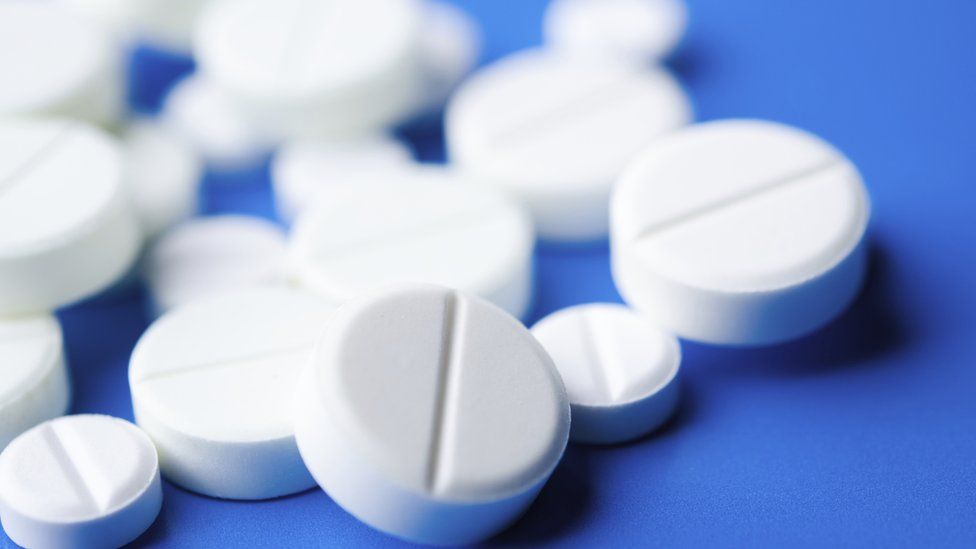Aspirin trial to examine if it can stop cancer returning
- Published

The world's largest clinical trial to examine whether aspirin can prevent cancers returning has begun in the UK.
About 11,000 people who have had early bowel, breast, prostate, stomach and oesophageal cancer will be involved.
Uncertainty about the drug's possible anti-cancer qualities has led to fierce medical debate in recent years.
If it is proven to work, scientists say it would be "game-changing", by providing a cheap and effective way to help more patients survive.
During the study, funded by the charity Cancer Research UK and the NIHR - the research arm of the NHS - patients will take a tablet every day for five years.
'Toughest experiences'
Researchers will compare groups of patients taking different doses of aspirin with people taking dummy (placebo) pills and check for any recurrences of cancer.
Dr Fiona Reddington from Cancer Research UK said: "The trial is especially exciting as cancers that recur are often harder to treat so finding a cheap and effective way to prevent this is potentially game-changing for patients."
The trial will run across 100 UK centres, involving patients who are having or have had treatment for early cancer, and will last up to 12 years.
But scientists warn that aspirin is not suitable for everyone and should not be used without medical advice.
Taking the drug every day comes with a serious health warning as it can cause side effects such as ulcers and bleeding from the stomach, or even the brain.
Clear proof sought
Prof Ruth Langley, lead investigator on the trial, said: "There's been some interesting research suggesting that aspirin could delay or stop early stage cancers coming back but there's been no randomised trial to give clear proof.
"The trial aims to answer this question once and for all.
"If we find that aspirin does stop these cancers returning, it could change future treatment - providing a cheap and simple way to help stop cancer coming back and helping more people survive."
Alex King, 51, who was diagnosed with breast cancer in December 2009 and has been given the all-clear, said: "Having cancer was one of the toughest experiences of my life.
"Any opportunity to reduce the chance of cancer coming back is incredibly important so patients can rest more easily."
Many people are already prescribed daily, low-dose aspirin as a heart drug.
- Published4 September 2015
- Published6 August 2014
- Published21 March 2012